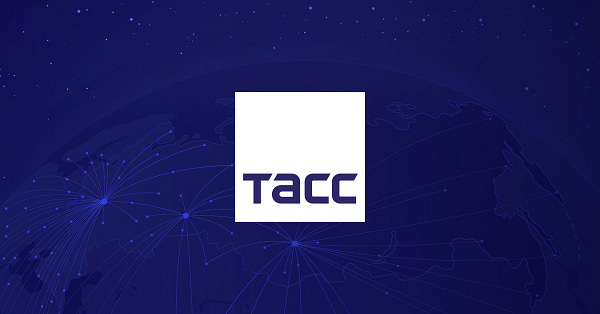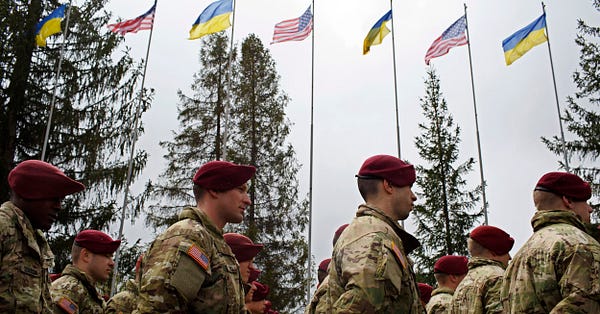Topics of Ukraine have dominated this Substack. It is fascinating, of course, it’s not every day that Russia goes to war in Eastern Europe, and now it’s plastered all over social media and the news. This conflict is, of course, intentional. Warfare has mutated over time to become more total than total wars in the past.
Total mobilization of nation-states isn’t practical or plausible because of the heavily globalized economy. Furthermore, most of the world is incapable of hiding large military buildups. Combined with newer developments of surveillance technology, personal communications and recording devices (your iPhone), and various social media and news websites prohibit historical surprise military actions. Now warfare comes your home, on your phone in your daily consumption of addictive social media news. Everyone is now personally engaged with the fates of other powers on the other side of the globe. Mobilization now means how many people you can care about your side in an impending conflict.
How does this relate to Ukraine? Well, the Russians are openly and actively telegraphing their moves, even exaggerating their military activities on the Ukrainian border. Open-Source Intelligence (OSINT) Twitter and Instagram accounts cover daily Russian military buildups and maneuvers. The Russians appear to lard up the coverage of their military deployments. Could Russians be feeding these independent, dilatant war and military commentators? The better question is, what’s the chance that the Russians are not? Including other sources, there’s a constant, overwhelming pump of information into the internet about this conflict.


Imagine a few dozen Russian information operations specialists taking Tik-Tok videos of each train of armored vehicles and putting them online, so there’s no way to tell just how much equipment is going where. For example, Russia could very well deploy a Battalion Tactical Group in a position with zero personnel attached to it as a diversion. Where are all the videos of Russian soldiers themselves? Why just the flashy, cool-looking equipment?
Prussian military theorist Carl von Clausewitz wrote in his 1832 book, On War, “Der Krieg ist eine bloße Fortsetzung der Politik mit anderen Mitteln.” The English translation for the Russo-Ukraine Crisis context, “War is merely the continuation of policy [politics] by other means. We see, therefore, that war is not merely an act of policy, but a true political instrument, a continuation of political intercourse carried on with other means. What remains peculiar to war is simply the peculiar nature of its means.”
Politics and policy are typically considered separated but similar in the English-speaking world. The same goes with concepts of diplomacy. However, the German “Die Politik” wraps the three notions in a single idea. Via FischerKing, “Die Politik refers to politics and policy, and even diplomacy. Politik Machen [make politics] can mean working out a deal with foreign leaders.” This concept is more useful in the modern era of conflict. Whether called “Fourth-generation Warfare” or “Hybrid Warfare,” we see a return of historical norms of Great Power Politics blended with the advanced technology of our age.
The reverse of “war is the continuation of politics” must be true too. Politics is the continuation of war by other means. The line is continuous, not discrete, to borrow a term from mathematics, with lines of conflict defined by the intensity of the troop-on-troop conflict. The political comparison explains the political campaign-like atmosphere of the coverage and fanfare around the Russo-Ukraine Crisis. Western Media indulges in both politics and war drama, and the endorphin highs from endless speculation are elating to the journalist and commentator.
What is Russia’s goal with the social media information shock and awe? To compel Ukrainian capitulation, encourage a negotiated settlement with Western powers, and break any resistance ahead of time. Russia wants to win without fighting, and the US and UK aren’t confident in Ukraine’s ability to resist a full push. Furthermore, most players involved would prefer no loss of life to occur.



However, this speculative Russian information campaign also applies to other powers involved asymmetrically. Ukraine is trying to appear resolute and unmovable in the face of Russian armored divisions. The United States the United Kingdom demonstrate their seriousness and toughness on the situation. There is heavy press surrounding anti-armor weapons arriving in Ukraine to give the appearance of deterrence. The information must combat information, combating other information ad infinitum. Up until the final test of the veracity of this information – combat – then there is the ever-present epistemological question of knowing versus not knowing.
This information fight is just the tip when it comes to modern warfare. Conflict occurs regularly, often economically, even amongst powers who are mostly friendly with one another. Discussions of NATO disunity indicate competition between powers in the alliance and jockeying over another for advantage. As I said previously, the Russo-Ukraine Crisis and German unhelpfulness come at the same time their protest over an EU complaint about Chinese actions against Lithuania. Who is behind this simultaneous complaint? It may be coincidental, but Lithuania, Poland, and Ukraine look to the United States and the United Kingdom for support against Russia and, increasingly, China. These powers unify against German economic stubbornness and self-interest. There are moves within moves.
These moves come as increasing, quiet US pressure on Ukrainian domestic politics. For reasons outside the scope of this piece, no major power involved will allow a kleptocracy to rule Ukraine in the long run. Especially given its current stance as a major energy producer and buffer state against Russia, European Powers, and the United States must ensure Ukraine is viable as a state and military, else it will partition. Furthermore, future normalization with Russia requires middle-manning countries to comply with the interests of the major powers.
Bad Takes on the 2022 Russo-Ukrainian Crisis (Part 1)
Now that there’s tremendous fodder to mock on Twitter, it’s time to mock the silliest takes on the current crisis in Eastern Europe.

Well looks like those javelins were pointless, let’s pack it in everyone. The Ukrainian democratic superweapon has this in hand. Please ignore the incredible graft that permeates Ukraine.
The unseriousness of comments like this beg the question of why making them in the first place. It’s simple, really - to pander to Western sensibilities of overeducated, over-intoxicated-on-the-news professional liberal classes. A system of government doesn’t win wars as most Europeans will tell you.


The article is clipped in the preview but this is yet another kind of Westernized propaganda piece about Ukrainian women. Russian troops are nowhere near as professional as American troops and the historical fear of Russians is appropriate, but, the idea that this is a healthy message to send the world is bizarre. It reeks of desperation or liberal fantasy.
There is a real, horrifying prospect that Russia will use mass social media to live-stream or rapidly upload videos of artillery impacts like Azerbaijan did in its war with Armenia. In a country that is rapidly depleting in population like Ukraine, could you imagine the psychological and demographic impact of large swaths of women wiped out in combat? Evacuate the women and children.
Zelensky - Biden

Zelensky is trying to maintain composure as president under the control of his country when his capacity as a nation-state and as a leader is quite limited and dependent upon outside countries’ support. He’s in a tough position, boxed in by the real possibility of a full-scale Russian invasion with diplomatic options on the table.

I agree the Biden people are pissed at the Zelensky government, and vice-versa. However, in the above tweet citing Julia Ioffe’s analysis I think there’s an exaggerated rift just because of Ukraine’s dependence on the UK/US.


Frustrations are normal and intelligence does get things wrong - but there is a massive Russian force on the borders of Ukraine. Now the Progressive-Liberal mind is prone to exaggerations and apocalyptic predictions and that’s a fair criticism.
However, what does Ukraine’s current posturing have to do with the guy in the shadows, Ihor Kolomoisky? What are Russia’s, the United States’, and the United Kingdom’s thoughts are about the people behind the politics in Ukraine? We will likely find out some day in the future.






